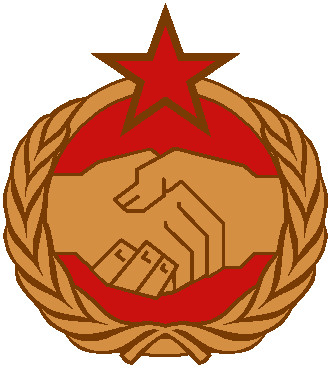This is from an email that Grover C. Furr (whom many consider a ‘pro‐Soviet’ historian) sent to me in January 2020:
After World War 2 the study of the specifically anti-Jewish aspect of German massacres was not emphasized. Soviet Jews were targeted, but so were all communist party members. The Soviet government had a policy not to emphasize the sufferings of any one national group over others. They emphasized that every group, all Soviet citizens, were massacred by the Nazis. And that is true, of course.
The Soviet writer Vassily Grossman and others composed a “Black Book of Soviet Jewry” about Nazi targeting of Jews. Soviet authorities refused to publish it because it singled out Jews, as opposed to other Soviet peoples. (Grossman was a communist who later, after Khrushchev’s “Secret Speech,” became an anticommunist because he believed Khrushchev’s lies).
The Soviets also had a big problem with Zionism, particularly after the formation of the State of Israel in 1948. However, the Soviets also set up the Jewish Anti-Fascist Committee, to raise awareness of the Nazis’ attacks specifically on Jews. This was certainly acknowledgement of the specifically anti-Jewish aspect of Nazi policy.
The problem was that the JAFC morphed into a Zionist organization. And Zionism was hostile to the concept of Soviet citizenship and internationalism. A dozen leaders of the JAFC were arrested in 1948-9, and tried for treason as American spies in 1952. All but one were executed.
Once Stalin died, they were exonerated — by Lavrentii Beria! (assuming the documents we have now are genuine). But Beria evidently did not think that Stalin had anything to do with this. Beria blamed an anti-Semite who was a high-ranking officer[.]
In 1948 Il’ia Erenburg, a famous Soviet Jewish writer (and one who did not like Stalin) published “Answer to a Letter” in Pravda. It’s an affirmation of the USSR as the only real homeland for Jews and other national groups, and a critique of Zionism. Some years ago I translated it and put it on line: https://msuweb.montclair.edu/~furrg/pol/erenburganswer.pdf
One more point: The concept of “genocide” as we understand it today was invented by Raphael Lemkin in the mid-1940s. But Lemkin was just as anticommunist and anti-Soviet as he was anti-Nazi. Consequently, for a long time the concept of Nazi genocide was associated with anticommunism.
So! Should the Soviets, during the Stalin period, have published The Black Book and, in general, encouraged or at least permitted study and publication about the specifically anti-Jewish aspect of Nazi mass murder? In my opinion, sure they should have! “Hindsight is 20/20!” But I understand why they did not.
After Stalin’s death, and especially after Khrushchev’s lying “Secret Speech,” the campaign to get Soviet Jews to emigrate to Israel got under way in a big way. I haven’t studied this period. It’s quite different from the earlier period.
(Emphasis added.)
In sum, the Soviets were usually shy about discussing the Shoah because they were worried about accidentally coming across as chauvinistic. It was almost certainly not, as some historians (including the otherwise respectable John-Paul Himka) have suggested, the result of antisemitism.
It is worth noting that despite their general timidity about the subject, the Soviets were also among the first to document and portray the Shoah. Quoting Rich Brownstein’s Holocaust Cinema Complete, pages 21 and 44:
Surprisingly, half of the first Holocaust films came from behind the “Iron Curtain” […] Over 40 percent of the Post-War Era Holocaust Films (38) were produced by Soviet or [other] Eastern Bloc countries.
See also: First Films of the Holocaust: Soviet Cinema and the Genocide of the Jews, 1938–1946 and The Phantom Holocaust: Soviet Cinema and Jewish Catastrophe.


Some Jews, without meaning to disrespect the other victims, do discourage the definition of ‘Holocaust’ that includes millions of gentiles, but I do agree that it is frustrating how little recognition there is for those victims. Particularly the Soviets, whom the Third Reich treated even worse than Jewish POWs from the Anglosphere, and I’ve mentioned before that I’ve seen far more horseshoe theorism than any discussions on Axis atrocities in the U.S.S.R. So while I am personally reluctant to use the expanded definition of ‘Holocaust’, either way the little recognition that the other millions of victims receive is very frustrating.